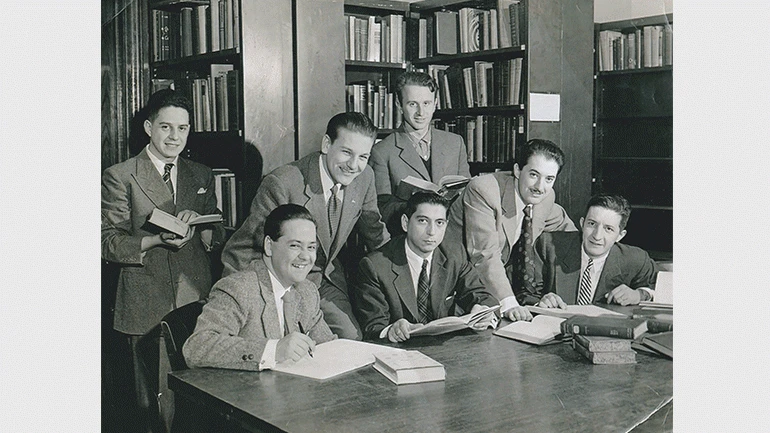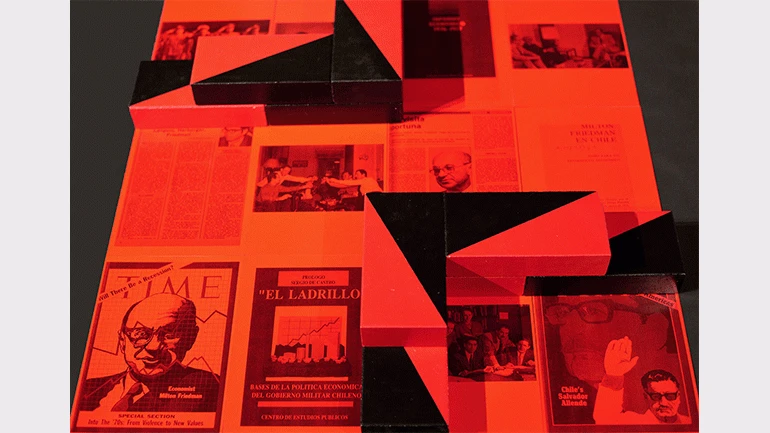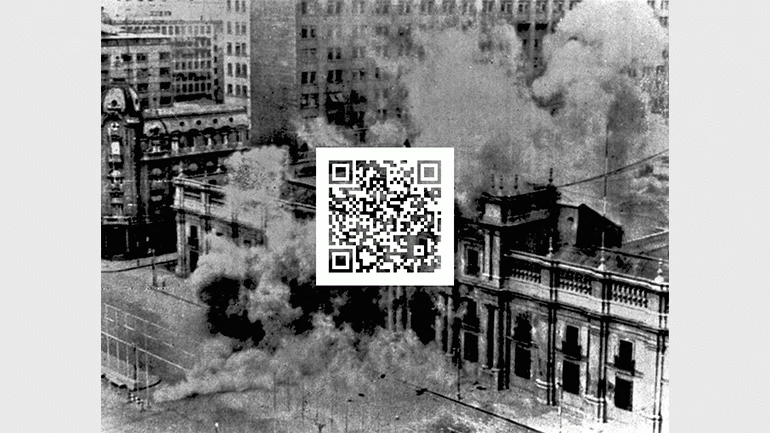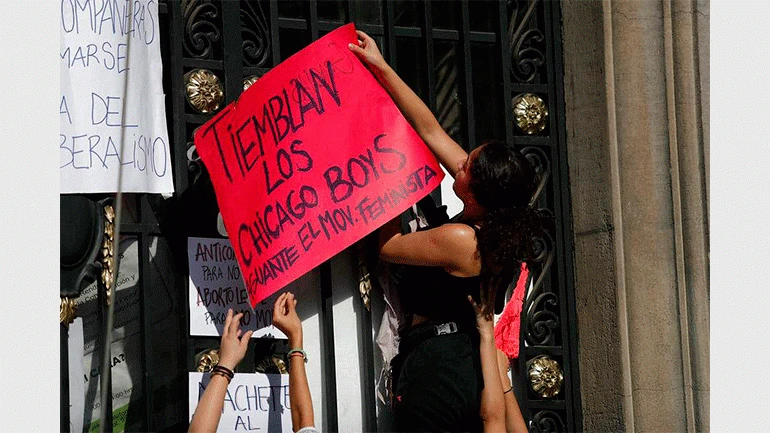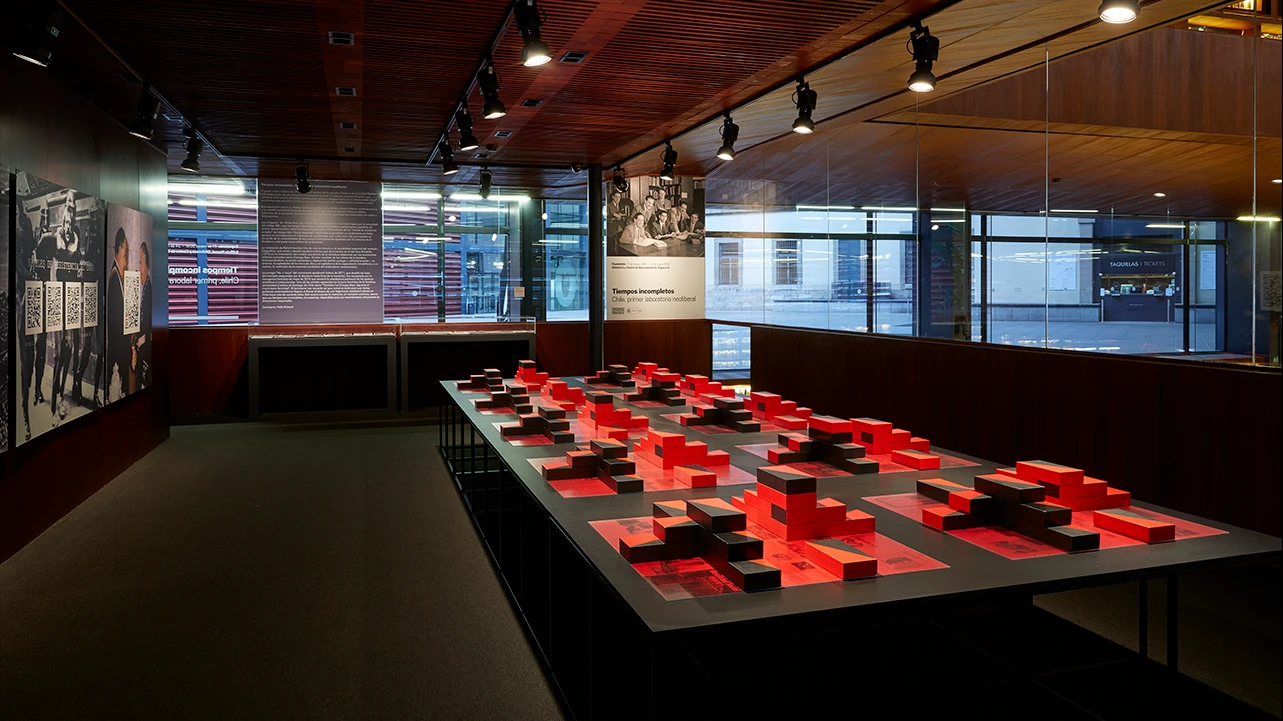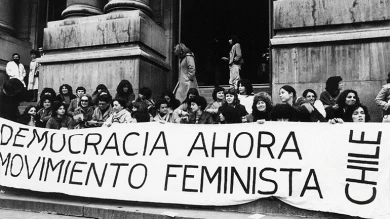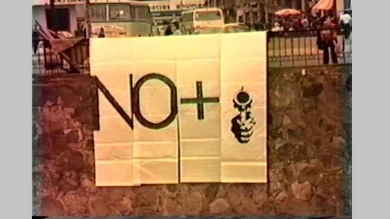Unfinished Timelines
Chile, First Laboratory of Neoliberalism
The 1973 military coup in Chile signaled the end of the historical narrative promoted by the Unidad Popular (Popular Unity) party and the establishment of the seventeen-year dictatorship of Augusto Pinochet, which combined state terrorism (persecution, torture, and disappearances) with the “shock doctrine” that turned Chile into the first laboratory of neoliberalism in the world.
The exhibition establishes a dialogue between the works of two contemporary Chilean artists and the feminist student uprising of May 2018, placing the unchallenged narrative of the dictatorship–transition sequence under critical scrutiny, disrupting its continuity with leaps and digressions.
In Felipe Rivas San Martín’s images, tragic historical memory is disrupted by the contemporaneity of the QR code, an information and commercial technology that expedites the capitalist desire of operationalizing all stored data as efficiently as possible. The cold calculation of the QR’s (Quick Response) “high levels of damage resistance,” intended to guarantee a seamless delivery, invites us to contrast the injured with the unscathed, making all the more poignant the memory of the vulnerability of those bodies historically assaulted by the violence of the dictatorship and the democratic transition’s military/civilian pact.
Patrick Hamilton’s installation takes archives that document the role played by the 1973 book El Ladrillo (The Brick) in cementing the dictatorship’s economic model—developed by the Chilean economists known as the Chicago Boys—and dyes them red (an allusion to the spectral nature of photographic development, which both reveals and unveils). By dressing it in the colors of the anarcho-syndicalist flag, this semantic and physical twisting of the brick allows us to view both sides of the coin at once: on the one hand, the exploitation of labor and the capitalism of real estate speculation; and on the other, the restitution of the combative memory of revolutionary syndicalism.
The slogan “no + lucro” (no more profit) used by the 2011 Chilean student movement, which challenged the laws of the market established by the dictatorship toward the end of the transition, was taken up again by the feminist insurgency of May 2018 that shook up the patriarchal architecture of both the symbolic and institutional powers. One banner that appeared during the feminist occupation of the Pontificia Universidad Católica de Chile in Santiago read: “The Chicago Boys are shaking. The feminist movement endures.” Thus feminism reminds us that it is never too late for a powerful collective desire for emancipation to break up a neoliberal hegemony cemented in Chile more than forty years ago. These things happen when memory, in constant motion, accepts that its timelines are unfinished, in suspended animation, and have the potential to be critically rearranged in new and unexpected ways.
Comisariado
Nelly Richard
Programa
Muestras documentales, Biblioteca y Centro de Documentación
Organised by
Museo Reina Sofía
Curated by
Nelly Richard
Programme:
Library and Documentation Centre
Image gallery
